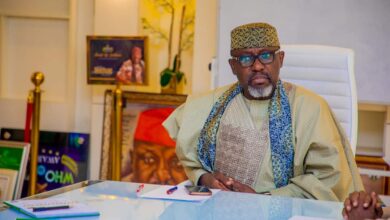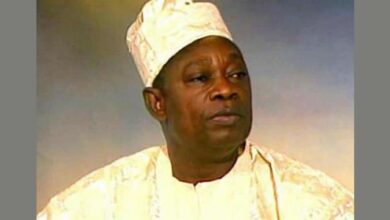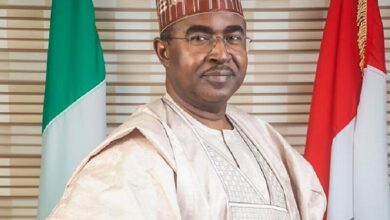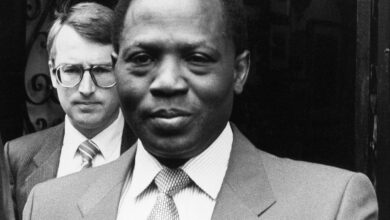20 Things You Should Know About Olusegun Obasanjo
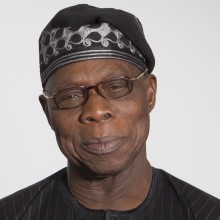
Olusegun Obasanjo is one of the most influential figures in Nigerian politics and a prominent leader in African history. Serving as Nigeria’s president in two non-consecutive terms, he has played a significant role in shaping the country’s political landscape. Here are 20 important facts you should know about Olusegun Obasanjo.
1. Early Life and Background
Olusegun Obasanjo was born on March 5, 1937, in Abeokuta, Nigeria. He comes from the Egba clan of the Yoruba people, and his upbringing influenced his strong sense of nationalism and leadership.
2. Military Career
Obasanjo began his career in the Nigerian Army, where he quickly rose through the ranks. He participated in the Nigerian Civil War and played a critical role in the military’s operations.
3. First Tenure as President
Obasanjo first served as Nigeria’s military ruler from 1976 to 1979 after taking over following General Murtala Mohammed’s assassination. He is credited with initiating political reforms and returning the country to civilian rule.
4. Transition to Civilian Rule
Under Obasanjo’s leadership, Nigeria held its first democratic elections in 1979, which resulted in the election of Shehu Shagari as president, marking a significant step toward democracy.
5. Imprisonment and Release
In 1995, Obasanjo was imprisoned on charges of conspiracy to overthrow the military government of Sani Abacha. He was released in 1998 following Abacha’s death, becoming a symbol of resistance against military rule.
6. Second Tenure as President
Obasanjo was elected president again in 1999, this time under a civilian government, and served two terms until 2007. His presidency marked a critical period in Nigeria’s return to democracy.
7. Economic Reforms
During his second tenure, Obasanjo implemented several economic reforms aimed at stabilizing the Nigerian economy, enhancing transparency, and attracting foreign investments.
8. Debt Relief Initiatives
Obasanjo advocated for debt relief for Nigeria, successfully negotiating with international creditors to reduce the country’s debt burden, which contributed to economic recovery.
9. Anti-Corruption Efforts
He established the Economic and Financial Crimes Commission (EFCC) in 2003 to combat corruption and financial crimes in Nigeria, emphasizing the need for accountability in governance.
10. Promoter of Education
Obasanjo prioritized education during his presidency, implementing policies aimed at improving access to quality education and enhancing the educational infrastructure across Nigeria.
11. Champion of African Unity
Obasanjo has been an advocate for African unity and regional cooperation, serving as a key figure in the African Union and promoting initiatives aimed at peace and development on the continent.
12. International Diplomacy
Following his presidency, Obasanjo has remained active in international diplomacy, serving as a mediator in various conflicts across Africa, including in Liberia and Sudan.
13. Author and Writer
Obasanjo is also an accomplished author, having written several books on leadership, governance, and his experiences in politics, contributing to the discourse on African development.
14. Influence on Nigerian Politics
His influence extends beyond his presidency, as he has continued to play a significant role in Nigerian politics, advising successive leaders and engaging in political discourse.
15. Agricultural Development Advocate
Obasanjo is passionate about agricultural development in Nigeria, advocating for policies that support farmers and improve food security in the country.
16. Cultural Contributions
As a prominent Yoruba leader, Obasanjo is committed to promoting Yoruba culture and traditions, using his platform to foster cultural awareness and appreciation.
17. Global Recognition
Obasanjo has received numerous awards and recognitions for his contributions to peace, democracy, and development in Africa, earning respect on the global stage.
18. Personal Life
Obasanjo is married with children and is known for his strong family values. His personal life often reflects his commitment to community and leadership.
19. Legacy
Obasanjo’s legacy is marked by his dedication to democracy, economic reform, and social justice. He remains a significant figure in discussions about Nigeria’s future and Africa’s development.
20. Continued Engagement
Even after leaving office, Obasanjo continues to engage with political and social issues in Nigeria and Africa, participating in forums and discussions aimed at promoting good governance and sustainable development.
Olusegun Obasanjo is a pivotal figure in Nigeria’s history, with a legacy that continues to influence the nation’s political landscape. Understanding his life, career, and contributions provides valuable insights into the complexities of leadership and governance in Africa.

